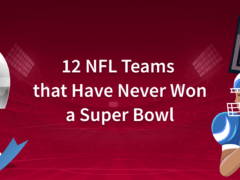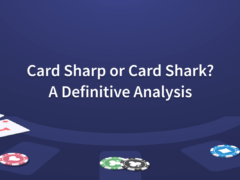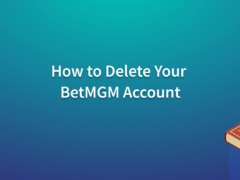Join our subscription list to get access to new bonus offers, online casino reviews, and industry news all in one newsletter!
How Casino Self-Exclusion Works in Michigan: Michigan Disassociated Persons

 3.8K
3.8K

Problem gambling is a sensitive but important subject that is never far from the minds of industry regulators. One of the effective methods of implementing responsible gambling practices in the US is voluntary self-exclusion programs. In this article, we’ll take a detailed look at this subject within the state of Michigan.
We’ll first discover exactly how casino self-exclusion works in the Great Lakes State, before learning more about the numbers. Finally, we’ll address a few frequently asked questions on the topic.
How Michigan Casino Self-Exclusion Works
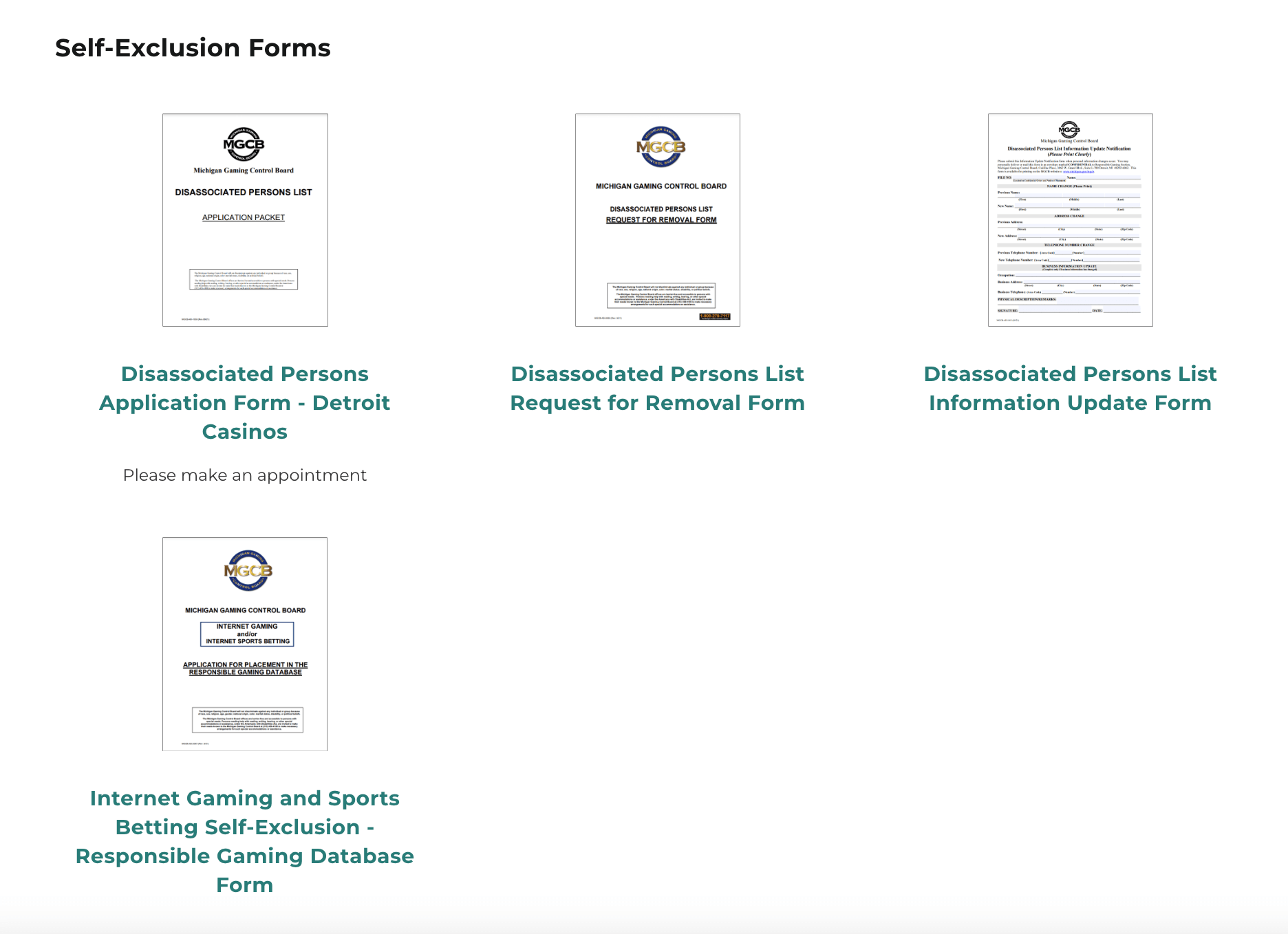
There are two key self-exclusion programs in the Great Lakes State, which work in tandem to give problem gamblers the assistance they need. The Michigan Gaming Control Board Disassociated Persons List is for land-based casinos in Detroit – MGM Grand Detroit, MotorCity Casino, and Hollywood Casino at Greektown. While the Internet Gaming and Sports Betting Responsible Gaming Database, also handled by the MGCB, covers online wagering.
In order to enroll in either program, you must first acquire and complete the relevant self-exclusion forms from the MGCB. After that, here’s what needs to happen.
Michigan Online Gambling Self-Exclusion Process
Exclusion from internet gambling in the state is the easier of the two processes, so let’s start with this.
The Responsible Gaming Database application pack is a straightforward six page document, just one of which is devoted to your personal details. You’ll need to supply basic information such as your name, date of birth and gender, as well as contact details and social security number.
You may choose to exclude yourself from Michigan online casinos, sports betting or both, for a period of one year or five. You will also need to sign an affidavit and include a copy of a valid government-issued identity document when submitting.
Your request to be added to the Responsible Gaming Database can be submitted in one of three ways:
- Visit any Michigan Gaming Control Board office in person;
- By email to [email protected];
- By mail to the following address: Responsible Gaming Section, Michigan Gaming Control Board, 3062 West Grand Boulevard, Suite L-700, Detroit, MI 48202.
Land-Based Casino Self-Exclusion in Michigan
In order to be excluded from physical casinos in the state, you need to add your name to the Michigan Disassociated Persons List (DPL). Unfortunately, you can only do this in person by attending an MGCB office. But you can speed the process up by downloading and filling out the forms ahead of your arrival.
The document contains 11 pages of information, including an application form that is slightly longer than its online counterpart. Since this program involves preventing you from physically attending casinos, you need to supply additional descriptions. This includes information about any tattoos you have, as well as natural attributes such as your height, weight, eye color and ethnicity.
It’s important to remember that by adding your name to the DPL, you are agreeing to certain legal restrictions. Anyone on the self-exclusion list who enters a Michigan casino will be found guilty of criminal trespassing. This is punishable by a fine of up to $1,000 and could even lead to imprisonment.
It is not possible to adjust the length of time you spend on the Disassociated Persons List. Your only option is to commit to five years.
Unfortunately, this program only excludes individuals from those casinos licensed by the Michigan Gaming Control Board. As such, the DPL does not apply to the state’s tribal casinos. In order to exclude from these sites, you will need to join each individual casino’s self-exclusion program. For instance, take a look at the self-exclusion program offered by the Pokagon Band of Potawatomi Indians, the tribe that operates the three Four Winds Casino locations in the Great Lakes State.
How to Get Off a Self-Exclusion List in Michigan
If you are yet to complete the minimum self-exclusion period, it is impossible to remove yourself from either program. Both the Disassociated Persons List and the Internet Gaming Responsible Gaming Database are legally binding documents. Once signed, there is simply no way to void either agreement.
However, once your time is up, you are permitted to submit a self-exclusion removal request. You will find the five page Disassociated Persons List Removal Application Form on the Michigan Gaming Control Board website.
After completing the form, you may submit it to the MGCB using any of the three channels mentioned previously. Keep in mind though, that your removal is not considered complete until you’ve received written confirmation from the gaming board.
Problem Gambling in the USA
According to the National Council of Problem Gambling, as many as two million adults in the USA today struggle with severe gambling addiction. Further, there could potentially be another six million with what would be classed as “moderate” problems. So it’s quite clear that regulators and lawmakers need to take this matter seriously when devising policy.
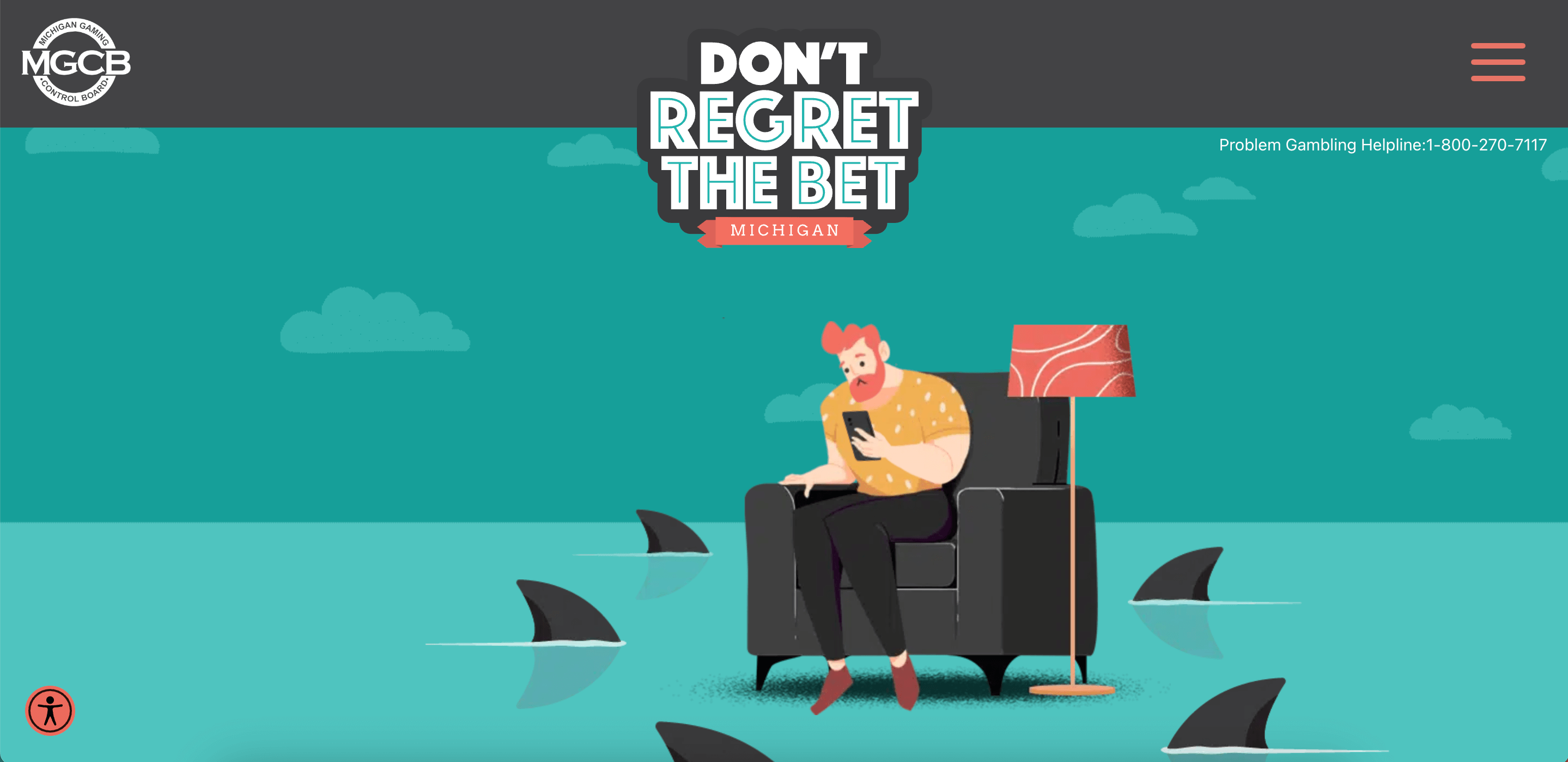
Individual casinos in the country provide more responsible gambling tools than ever. These include customizable deposit limits and other spending controls, as well as voluntary exclusions. The latter is a particularly effective weapon. But is it enough to allow the casinos, who ultimately have profits in mind, to manage such a sensitive and potentially harmful issue?
Some countries, such as the United Kingdom, don’t think so. In addition to tightening up regulations across the board, they now successfully operate a nationwide self-exclusion scheme. All casinos and sportsbooks licensed by the UK Gambling Commission must be a part of the GAMSTOP program. And since launching in 2018, it has helped over 340,000 problem gamblers.
But the UK is a small country, similar in size to Oregon and with roughly twice the population of California alone. Implementing such a scheme across the United States would be impractical and quite unrealistic. Which is why it’s vital that state regulators like the Michigan Gaming Control Board take the lead at a local level. The regulatory body has recently unveiled the Don’t Regret The Bet website and program that offer useful information on problem gambling, a self-assessment test, as well as the access to problem gambling anonymous hotlines and resources.
Michigan Casino Self-Exclusion Stats
From January 2001 to February 2023, the MGCB processed a total of 4,120 Disassociated Persons List applications. Considering the population of the Great Lakes State is around 10 million, that may not seem like a significant amount. But it’s worth noting a steep recent uptick in numbers.
For the whole of 2022, 214 applications were handled by the MGCB. However, 56 applications were completed from January 1 to February 4, 2023 alone. Again, the raw numbers for Michigan are not indicative of a problem that is out of control. But it’s certainly something to keep an eye on.
Final Thoughts
Studies around the world consistently show that voluntary self-exclusion programs are highly effective. And as awareness of problem gambling in the country grows, they will undoubtedly continue to play a vital role in tackling the issue.
If you are struggling with gambling problems, or if you know someone who is, understand that you are not alone. Seek advice from the Michigan Department of Health and Human Services (MDHHS) on their 24/7 toll-free number at 1-800-270-7117.
Alternatively, you can reach out to the National Problem Gambling Helpline on 1-800-522-4700.
Michigan Casino Self-Exclusion FAQs
Is there a casino self-exclusion program in Michigan?
Yes. There is the Disassociated Persons program which covers land-based casinos in Michigan. But a separate online gambling self-exclusion database also exists. If you wish to voluntarily exclude yourself, registering with both is advisable.
What is a Michigan disassociated person?
The Michigan Disassociated Persons List, or DPL, is a voluntary self-exclusion scheme designed to help compulsive gamblers in the state. A Disassociated Person is simply someone who has added themselves to the register. Such people are banned from entering all land-based casinos in Detroit.
Does the Disassociated Persons program cover all casinos in Michigan?
No, the Disassociated Persons program only applies to casinos licensed by the Michigan Gaming Control Board. Since many casinos in the Great Lakes State are under tribal control, these sites are not covered. However, such casinos offer their own individual self-exclusion programs.
Can I play online if I am a Disassociated Person?
The Disassociated Persons List only applies to land-based casinos. However, if you read the terms of service at a Michigan casino or betting operator, you’ll likely find that it expressly excludes Michigan Disassociated Persons from joining.






